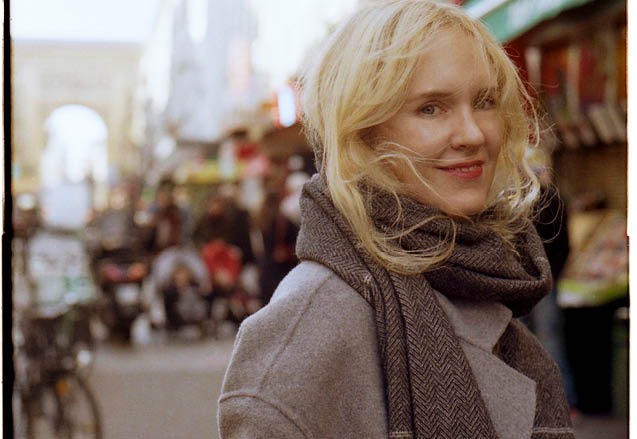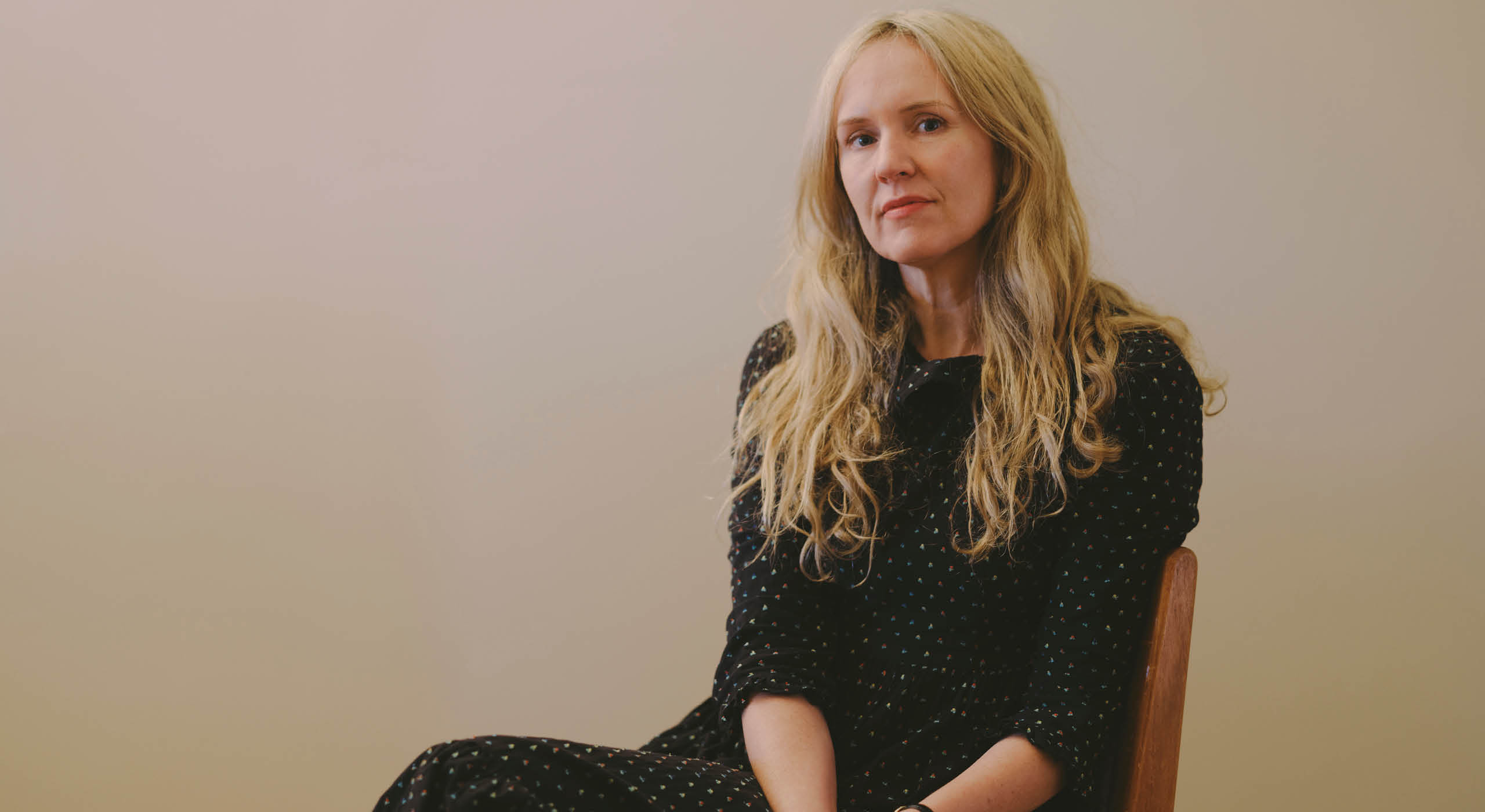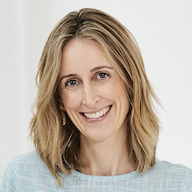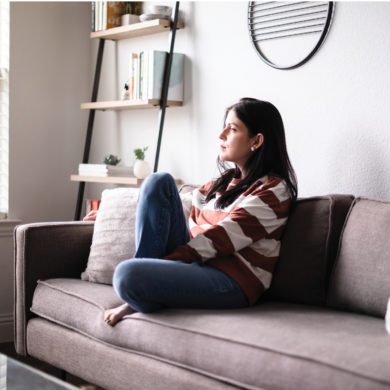After the hustle of the city outside, the foyer of the old Parisian apartment block that January evening was dimly lit and quiet. Jayne Tuttle, then in her late 20s and habitually late, had arrived unusually promptly. Heeled boots sinking into the carpet, she climbed the winding stairs around the lift well to her friend Sophie’s place.
The front door clicked and she heard Sophie and her small daughter Lou enter the foyer. “Où est Jayne?” asked Lou, so for the next few seconds Jayne played a game on the staircase, calling the little girl’s name then stepping back against the wall. Forwards and back they went, before Jayne finally leaned over the banister – completely unaware that the lift was descending silently through the darkness towards her.
“It’s hard to know exactly what happened at the moment of impact, what’s memory and what I know occurred,” she says now, from her home in Queenscliff, near Melbourne. “I know my head was jammed at a diagonal angle between the bottom of the lift and the banister, but I had this beautiful sensation of dreaming, of seeing my friends walking up the stairs and thinking it was strange that I couldn’t call out to them.
“And then there was a rising feeling, a rushing sound, a roaring noise in my ears, and that must have been the moment I knew that I was going to die.”


Somehow – she still doesn’t quite know how – Jayne managed to dislodge her head from underneath the lift. She doesn’t remember falling down the stairs, blood pouring from her head.
The next few weeks and months, though, spent immobile in a brace from head to hip, will remain with her forever. Doctors discovered she had broken her neck and any movement could be fatal. “It was like being locked in a prison the size of myself,” she writes.
The accident forms the denouement of her acclaimed first memoir, Paris or Die. Given what happened, you’d hardly blame her if she’d put down her pen and never returned to Paris – if she’d stayed in Australia with her dad and sister, Kate, who’d brought her home.
Instead, just a few months later, Jayne flew back to the city, determined to resume working in theatre and the life she’d had before. “It felt like the most natural thing in the world, to return,” she says. “I associated the accident with the 20th arrondissement, which became this place that I felt violently, viscerally disconnected from – like going there would be a journey to another planet. But the rest of Paris felt like home.”
It was like being locked in a prison the size of myself
Except the city didn’t feel quite as safe as it had before. Where once she’d admired the quintessentially Parisian pot plants balanced on balconies, now she saw them as thousands of potential accidents – one push and they’d fall like missiles onto the streets below.
A near-miss between a truck and a group of pedestrians one day left her shaking with fear. The possibility of death was everywhere. And finally, as she writes in her second memoir, My Sweet Guillotine, out this week, she was forced to return to Sophie’s building and re-enact the accident in an attempt to make the city’s authorities to improve its buildings. The reason? A 14-year-old boy had been decapitated by a lift in almost exactly the same circumstances.
In the 17th arrondissement, just a few kilometres from Sophie’s apartment, the boy was climbing the stairs to tell his mum he’d be watching soccer at a neighbour’s. A friend called out to him and he leaned over the stairwell to respond, just as a lift was descending. He was killed instantly, his head torn off by the lift cabin.
“I feel responsible,” writes Jayne in her book. “Is it reasonable to hope that someone might address this, in some way? Normal, even? I’m not trying to prove something to Paris or to take my near-death experience out on the city, I’d just like to make sure that the buildings know that people can be decapitated and to make sure that the protections are good enough that people don’t die. Now. Before it happens again.”
Jayne made the decision to sue the city authorities. The case was difficult, requiring her to revisit every aspect of the accident and collect testimonials from friends, family, colleagues and doctors – anyone who could say how traumatic the experience had been for her. There were times when she thought she couldn’t continue it and times when her only solace came from storing her experiences for later translation to the page.
“It’s perverse, but even as I had that horrendous experience of being back on the staircase, leaning over the banister in front of all these lawyers, I knew it would make a great story,” Jayne says. “Revisiting these experiences again when I was writing the book was absolutely excruciating but I had this desire to really explore what had happened. I think for anyone curious about how to exist after trauma, as I am, you have to revisit it, you have to pick at the scab and dig underneath.”
In the same way she returns to Paris over and over again, now with her husband and daughter, Jayne continues to revisit the accident and its ever-changing reflection. She is well today, with just occasional stiffness in her neck – a recovery doctors attributed to her youth and fitness after years of physical training as an actor. After exploring the psychological wound through writing, she now acknowledges the positive effect it had on her life.
Is it reasonable to hope that someone might address this, in some way? Normal, even?
“There was something about being returned to that very childlike state of needing to be looked after that made me realise the joy of just being alive,” she says. “It was surely the morphine, too, but I felt the joy of my heart just beating in my chest, and all the complexity that I’d built into my life suddenly being removed. I was forced to stop, just as we were in lockdown.”
Today, she and her husband own a bookshop in Queenscliff and plan to return to Paris again later this year. She feels more at peace, both with her past and her complex relationship with her adopted city. She tries, as so many of us do, to live in the moment.
“Without wanting to sound like a self-help book, life is fucking short. We get lulled into this state of feeling that the world owes us this sense of safety and wellbeing, and it doesn’t work like that. You really don’t know what’s coming in the next moment. So I feel grateful to be alive.”
Photos: Katrin Koenning (main) and Marie Yako
My Sweet Guillotine, the second memoir in Jayne Tuttle’s Paris trilogy, is out next Wednesday, September 7 (Hardie Grant)














No Comments